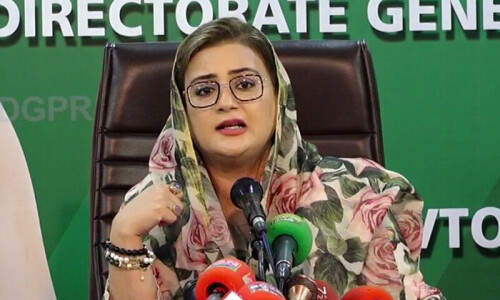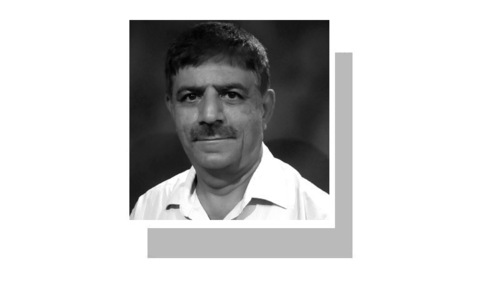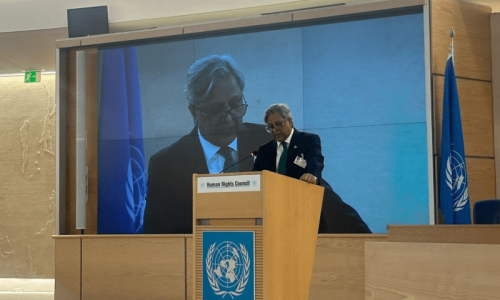
ISLAMABAD: Senior counsel and former attorney general Makhdoom Ali Khan has conveyed to the Supreme Court his reluctance to assist it as amicus curiae (friend of the court) in a case having political undertones since it involves interpretation of Article 62(1)(f) of the Constitution.
After a larger five-judge Supreme Court bench takes up the case on Tuesday, it will determine whether disqualification under Article 62(1)(f) of the Constitution is for life or has some specific time limit.
Article 62(1)(f) is the same provision under which former prime minister Nawaz Sharif was disqualified by a five-member Supreme Court bench headed by Justice Asif Saeed Khosa on July 28, 2017 in the Panama Papers case.
The larger bench, which will take up a set of 17 appeals against disqualification for possessing fake degrees, comprises Chief Justice Mian Saqib Nisar, Justice Sheikh Azmat Saeed, Justice Umar Ata Bandial, Justice Ijaz-ul-Ahsan and Justice Sajjad Ali Shah.
“I would prefer not to be embroiled in such a controversy, therefore, I humbly request that the notice issued to be me as amicus curiae be discharged,” wrote Mr Khan in a one-page letter to the registrar of the apex court with a request to bring his request to the attention of the chief justice.
In the letter which bears the date of Jan 26, the senior counsel has said that the matter pending before the apex court is an important constitutional case but has also acquired large political overtones. “I may therefore not be regarded by the parties involved and the public at large as neutral in the matter,” he said.
Says he may not be regarded neutral as he represented Sharif in Panama Papers case hearings
Mr Khan was appointed amicus curiae on April 10, 2014 by the then chief justice Tassaduq Hussain Jillani.
Three years later, the senior lawyer recalled, he represented Mr Sharif in some hearings of the Panama Papers case.
Finally Mr Sharif was disqualified from being a member of the National Assembly by the Supreme Court. Though Mr Khan had represented the former prime minister in the first round of the case, he was not his counsel in the second round when the apex court eventually disqualified Mr Sharif after the report of the Joint Investigation Team was submitted to the court.
Ever since its introduction several persons have been disqualified under Article 62(1)(f) of the Constitution and several cases have come up before the superior courts regarding its interpretation.
Last time such a case was taken up when Justice Anwar Zaheer Jamali was the chief justice. He reached superannuation on Dec 15, 2016.
In one of the hearings Justice Jamali had wondered how anyone could be disqualified forever on the basis of Articles 62 and 63 as people could reform themselves to be qualified under the same constitutional provisions after being disqualified at some point of time.
Published in Dawn, January 28th, 2018













































